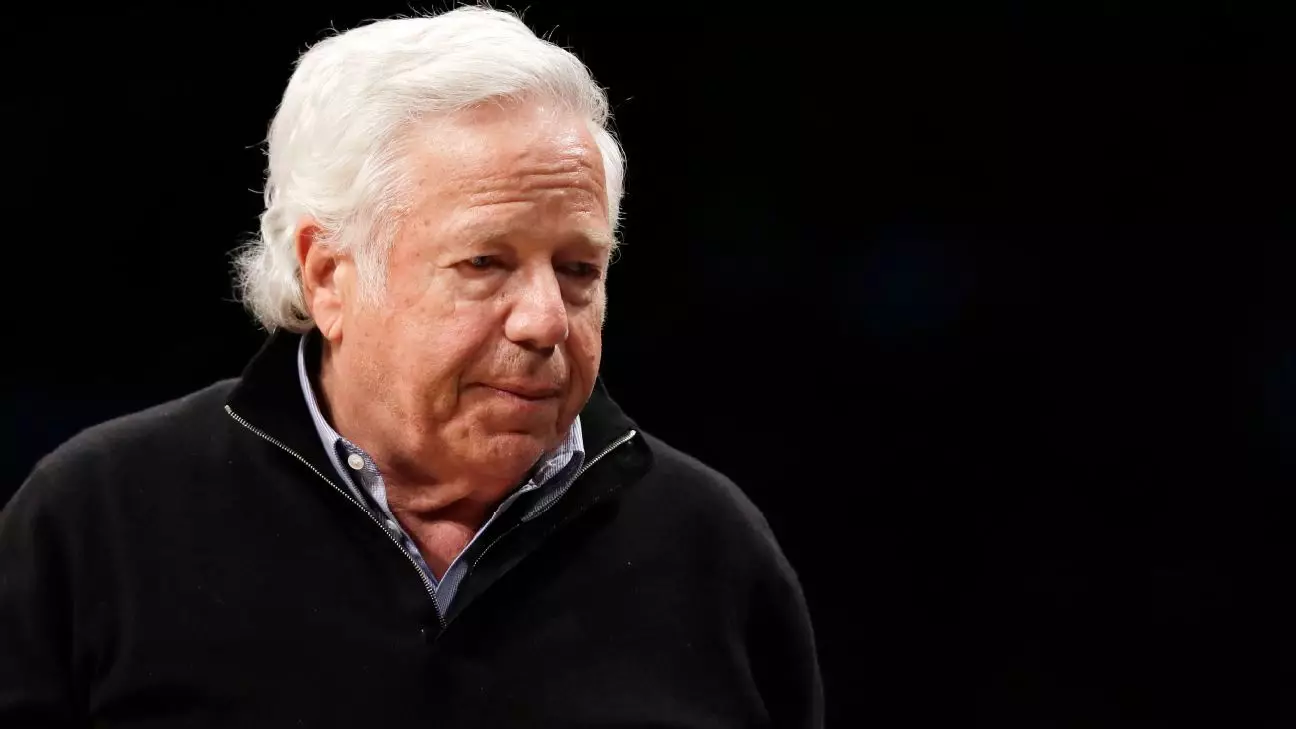The Pro Football Hall of Fame remains a coveted institution in American sports, celebrating the storied careers of players, coaches, and contributors who have significantly impacted the game of football. This year, the Hall’s contributor committee once again overlooked Robert Kraft, the owner of the New England Patriots and a six-time Super Bowl champion, sparking debates about what constitutes merit in Hall of Fame selections.
Understanding the Selection Process
The Hall of Fame’s contributor committee is tasked with selecting individuals who have made substantial contributions to the NFL without being players or coaches. This year, the committee opted for Ralph Hay, a lesser-known figure in football history, as their nominee for the 2025 induction class. This decision was surprising to many, especially considering that Kraft has been a finalist multiple times—thirteen to be exact—yet he has never advanced to the final voting stage.
Kraft’s lack of induction raises significant questions about how candidates are assessed, particularly when contrasting the achievements of a modern franchise owner against those from a different era. While Ralph Hay helped lay the foundation for professional football in the early 20th century, it’s also worth noting that the modern NFL owes much of its global success to owners like Kraft, who have invested not just funds but emotional capital into their franchises.
Ralph Hay’s induction has been portrayed as a recognition of his role in establishing the NFL. In 1920, he convened a meeting that led to the formation of the American Professional Football Association, which transformed into the NFL. Despite these contributions, supporters of Kraft argue that he should take precedence due to his significant role in bringing the league to its current prominence.
Interestingly, Hay’s ownership of the Canton Bulldogs lasted only four years, and some critics have pointed out inconsistencies in valuing his contributions compared to Kraft, who has seen nearly three decades of success with the Patriots. Hay’s reluctance to pay players and the brief duration of his team ownership have raised eyebrows, leading many to question how his historical significance aligns with Kraft’s modern achievements.
The Hall of Fame operates under a strict voting system, requiring the approval of 80% of its electorate for any nominee to gain induction. The choice to nominate Hay has been met with disappointment by some voters who expected Kraft to be recognized this year, especially with the recent split of coaches and contributor categories intended to streamline the selection process.
Critics argue that the current voting system might not adequately reflect the contributions of contemporary figures like Kraft, particularly as the NFL has evolved into a multi-billion dollar enterprise. The unexpected choice of Hay over Kraft signifies a potential disconnect between the Hall’s historical values and the realities of the NFL’s present and future.
Kraft has garnered significant support over the years, thanks in part to passionate advocates who argue that his induction is long overdue. Following the purchase of the team in 1994, Kraft transformed the Patriots into a powerhouse franchise, hiring the legendary Bill Belichick as head coach and leading them to unprecedented success. Supporters maintain that Kraft’s influence on the game far outweighs that of Hay, who has not been recognized as a finalist until this year.
Despite a decline in the concerted lobbying efforts this year, Kraft’s proponents note that he presents an exemplary model of what an NFL owner should aspire to achieve. Some prominent figures, including Hall of Famer Bill Polian, have been vocal advocates for Kraft, emphasizing the transformative impact he has had on the league.
A Broader Context for Induction
The selection process for the Pro Football Hall of Fame encompasses a broad range of contributors, including owners, broadcasters, and team executives. In recent years, several notable owners have received induction, highlighting their pivotal roles in shaping the league.
As the Hall of Fame committee prepares for upcoming selections, this year’s decision serves as a reminder of the complexities involved in recognizing contributions from different eras and roles within the NFL. When considering the legacies of figures like Kraft and Hay, it is essential to balance historical significance with the modern realities of the game, ensuring that all deserving candidates receive fair consideration.
The continued exclusion of Robert Kraft raises critical questions about the parameters of worthiness in the Pro Football Hall of Fame. As the conversation surrounding induction deepens, it will be fascinating to see how the Hall reconciles its historical roots with the dynamic present of professional football. Whether Kraft will finally earn a place in Canton remains to be seen, but the conversation around his candidacy highlights the ongoing evolution of the sport itself.

